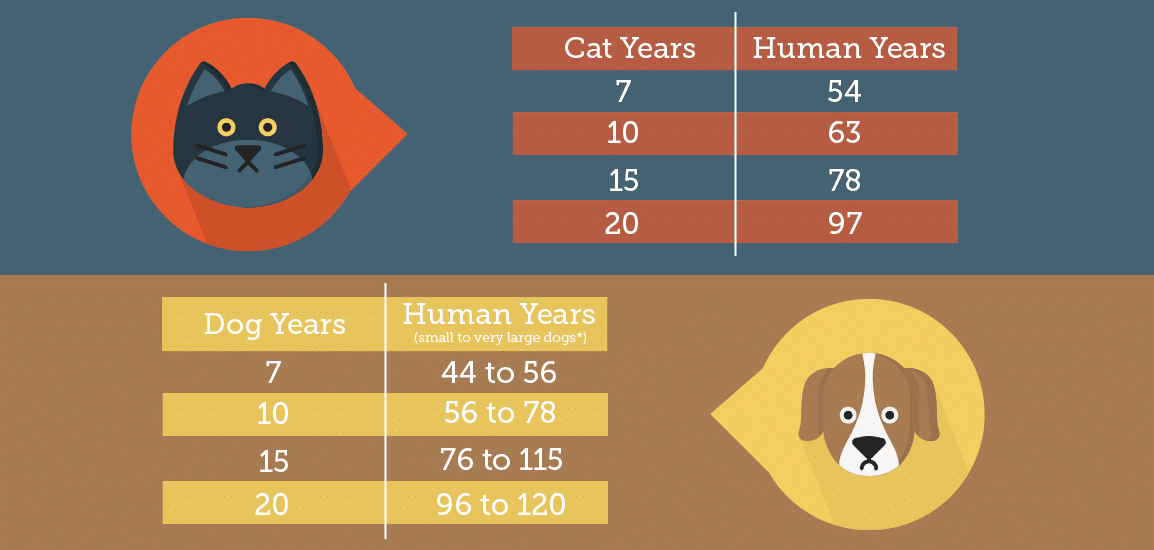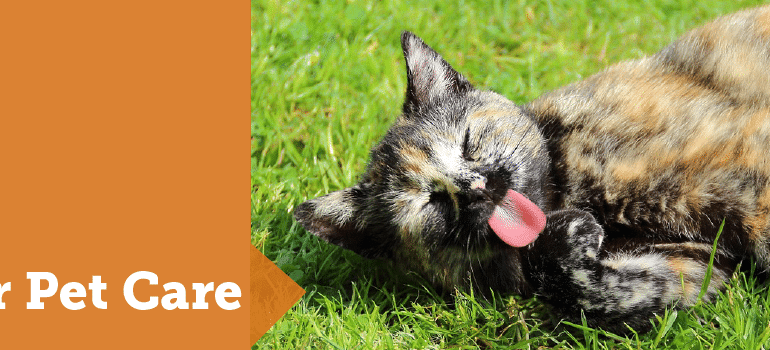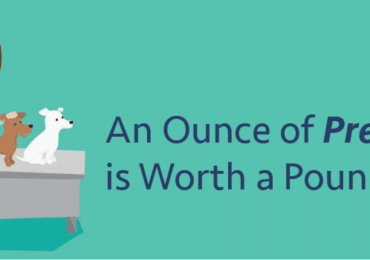Senior pets are paw-sitively wonderful! They bring exceptional joy to our homes and tons of benefits to our lives, which is why as pet owners we want to give them the best possible care for a healthy, happy life. Just like humans, as animals grow older they require a different approach to their wellness regimen. Brush up on these tips for optimal senior pet care to help keep your pet fit as a fiddle.

What defines a ‘senior pet’? The definition varies for a number of reasons, such as size and breed, but generally a small dog or cat is considered a ‘senior’ around age seven. Because larger dog breeds tend to have shorter lifespans, they are considered to be a senior at age five or six.

Age: Estimated Human Equivalents for Older Pets. *Small: 0-20 lbs; Medium: 21-50 lbs; Large: 51-90 lbs; Very large: >90lbs

Just as a pet’s age changes with the seasons, so do their care requirements. A vital part of preparing to care for a senior pet is educating yourself on the effects of animal aging so you can effectively and compassionately care for your beloved golden-ager.

Wellness exams should be scheduled more frequently for your elder dogs and cats, to help detect signs of medical problems early on. We recommend bringing your pet in for biannual visits with the vet to help them stay happy and healthy for as long as possible.
These exams will focus on detecting some of the most common health problems found in senior pets, including:
- Cancer
- Dental disease
- Diabetes
- Failing vision
- Hearing loss
- Heart disease
- Joint or bone disease
- Kidney disease
- Liver disease
- Cognitive dysfunction
- Weakness
It’s important to remember that age is not a disease and although senior pets may develop age-related issues, proper care and maintenance from pet owners is the best way to help our aging dogs and cats stay happy and healthy throughout their senior years.

Monitor your pet as they age and take notes on anything you see changing, and keep an eye out for signs or symptoms of any common health issues. Regular wellness exams are an excellent time for you to chat with your veterinarian about any changes that have developed in your pet since your last trip to the clinic. After all, owners spend the most time with their sweet seniors and can provide their vet with detailed info about their pets’ health.

Have more questions about geriatric pet care? We’d be happy to help! Give our office a call at 701.757.3500 or schedule an appointment online today.



